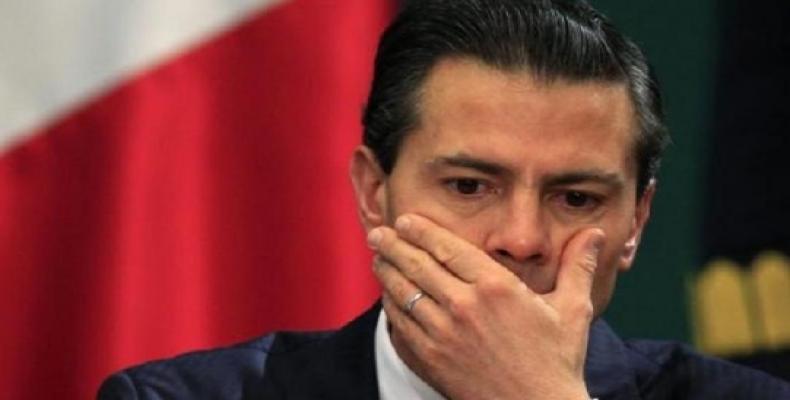Mexico City, July 13 (teleSUR-RHC)-- Activists expressed outrage and launched an online campaign after government trucks and construction vehicles entered this weekend protected lands of one of Mexico's indigenous communities in order to build a highly controversial highway.
Mexicans launched #XochicuautlaNoEstaSolo or "Xochicuautla is not alone" to tweet in solidarity after the recent attempt to begin construction on a new section of the highway Toluca-Naucalpan on the land of the Otomi community in San Francisco Xochicuautla.
There were many attempts by the private construction company owned by Juan Armando Hinojosa, who is believed to have close ties with Mexico's President Enrique Peña Nieto. However, the latest attempt at the construction, which was guarded by police officers, came a day after President Nieto signed on July 9 a presidential decree that canceled a 1954 decree that guaranteed to Otomi indigenous community their rights of lands in San Francisco Xochicuautla.
The new decree, on the grounds of "public interest" and the need "easy transport" between the Valley of Mexico and the Federal District, stripped 38 acres of lands commonly used to Xochicuautla community.
Officials claim that the private highway would deliver huge financial returns to the community, something that critics say would never happen.
According to a report by Proceso magazine, community leaders Lucas Josefa Hernandez, a member of the Supreme Council, Armando Garcia, chief of the community of Xochicuautla, and José Luis Fernandez Flores, spokesman for the Otomi Indians called the government actions "plunder" and said that it violated the ethnic rights granted to them by the state. They added that they were not consulted about the new decree and thus they had not given any approval for given up the lands.
Many inhabitants of the area accuse the government of expropriation and say the plan will destroy the Xochicuautla forests and natural resources. Some activists cut the water line to prevent the construction from taking place. The villagers also said that they would challenge the new presidential decree and that they had submitted a new complaint with the National Human Rights Commission (CNDH).


